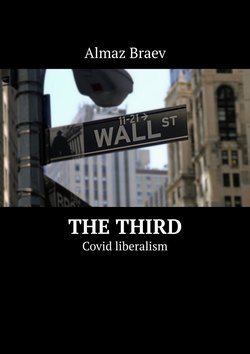Читать книгу The Third. Covid liberalism - Алмаз Браев - Страница 15
CHAPTER XII
ОглавлениеTHERE CAN BE NO TOTALITARIANISM WITHOUT REMIDS
All totalitarian regimes share a problem no less totalitarian in its essence than they are. The conclusions about their totality are just the final point, like an ocean that opens up before everyone instead of the rivers – events – that run together in streams to form that ocean. Still, the drops making up those rivers are people. Their thoughts. At the very beginning, when they start thinking similar thoughts, no one knows yet where that might take them. And after a while this results in a regime, a manifestation of the totality of myriads of thoughts. But who are these people? And why does responsibility for that totality rest with the leaders, not the people?
Answers should be sought in the people’s similarity, of course. With time, people will gather together to form an order – first a group, then a party that brings everyone together in one place or directs them to that place. Before people assemble in a square, their thoughts will get together. And before the similarity of indignation, vexation, and negation materializes (elsewhere in the world), one needs to find the origin of this similarity. The origin of their reaction and the source of their indignation lie in tradition. Tradition. Tradition-minded people take care to first observe their rituals. And then they respond to crises, all in a similar manner. That’s what the cause of totalitarianism is. Don’t look for similarities in city residents who have lost touch with the place that, while not their birthplace, still holds their roots and is home to their relatives. Refags remember no one, making it difficult to bring them together. Their thoughts are like cockroaches scurrying on the kitchen floor. Everyone is on their own. Everyone thinks they are someone. The totality of refags is yet to merge into their own ocean, their own world order. But we are still concerned here with tradition and tradition-minded people. We are investigating why they have their own totality.
Crises don’t turn everyone into a Nazi. Many zerefs don’t really know what the essence of fascism is. What they do and think doesn’t depend on them: remids do all the thinking for them. Just to make things clear, traditional zerefs are like little kids imitating adults. They are provided with ready-made social reflexes as they would be with food products that someone else grows or makes for them.
Their ancestors are another influence. That’s why zerefs, just like all traditionalists, bring up ancestors and rely on their precepts so often. And their parents, in turn, inherited behavioral models from the parents of their parents. And so on back. That’s not to say zerefs are born conservatives. No one is born something. Rather, life itself turns, when it’s born, into a routine, monotonous ritual.
But, among all the reflection groups, the most self-aware conservatives are, of course, the zerots, or the traditional feudal elite (see my book entitled Hierarchal Man). If you look at all the groups – zerots, zerefs, remids – remids are the new elite. Teachers, lawyers, distinguished, honored artists, writers, and, needless to say, public officials. They put in a lot of their energy to appear as the new elite. They sacrificed their lives to their careers. We didn’t choose them as the new elite, or new teachers, and they didn’t put in so much effort to have someone take away all the fruits of their hard work. A career, including reflection, means work – very energy-consuming work. Some want to grow materially; others, spiritually. Ultimately, they get what they deserve: honor and respect from the public. And then a crisis comes up…
A host of inherited ghosts.
Eldest sons are much like their fathers, perhaps because they don’t want their fathers to deprive them of their inheritance. Earnestness came to be a responsibility for everyone. At any rate, all eldest sons are earnest and businesslike. When the father is not at home, every tot knows who’s holding the fort.
